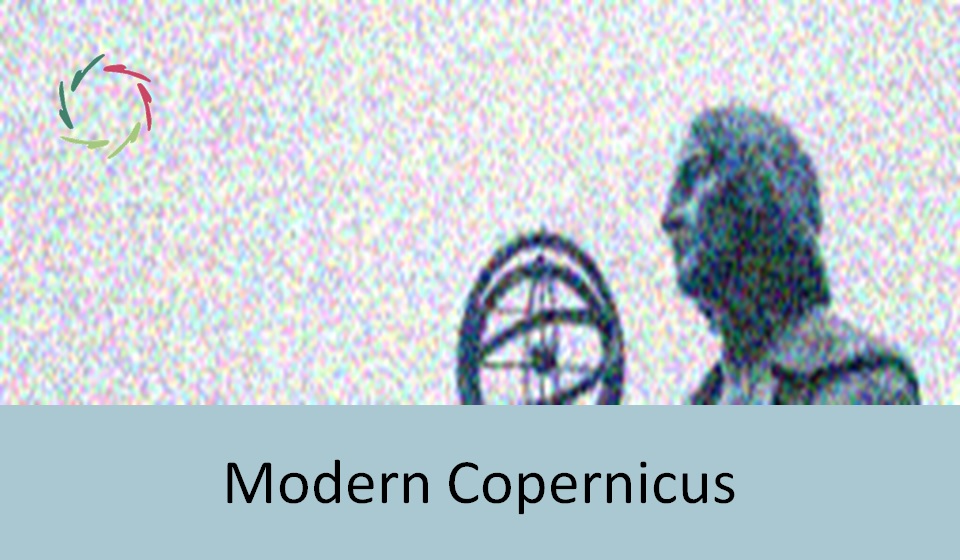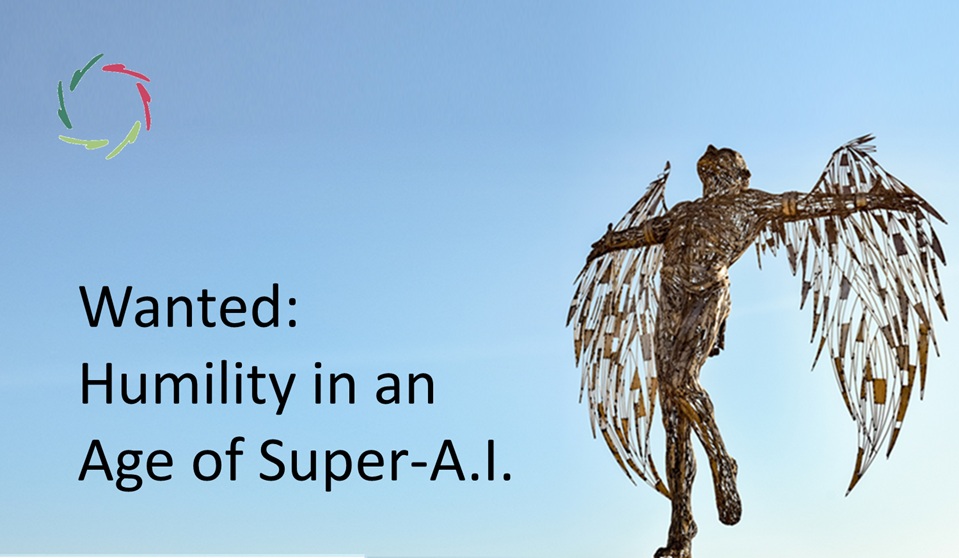Modern Copernicus

We need a new Copernican revolution in which each person acts as a modern Copernicus within his own inner mind-universe.
The historical Copernicus (1473-1543) placed the sun at the center of the physical universe instead of the Earth. Likewise, modern Copernicus places the deeper self – rather than the ego – at the center of his inner universe.
In your immense inner universe
Here also lies a resemblance with the known physical universe of half a millennium ago. Since then, the known universe has expanded immensely, to say the least, thanks to scientific progress.
Likewise, many people nowadays think the non-conscious part of the mind is relatively small ― if it exists at all. Scientific insight shows a very different picture. Traces of almost any experience – consciously or not – are kept alive and influence new experiences. This includes, for instance, many experiences during your first holiday as a child.
The mind/brain can contain all this information because it works pattern-wise, which is very different from digital memory-wise. To give an idea, there can be more patterns in the human brain than there are atoms in the known physical universe.
Ego-wise, you can only work with a fraction of a fraction of a…
Resistance
Fortunately, Copernicus himself didn’t encounter much resistance during his lifetime ― also because he was cunning enough to keep himself out of mayhem, for instance by just not showing up when expected. Also, he managed to publish his main ideas not long before his death, leaving the resistance broil for his successors, such as Galileo Galilei (1564-1642).
Modern Copernicus frequently encounters heavy resistance. In my view, the stakes are also even higher.
Cause of resistance
I believe resistance to Copernican ideas mainly comes from the entity that feels most endangered. This is the mere-ego ― possibly within every person. One may see this as an inner battle that is also probably the primary battle of the future. Yes, this is as dramatic as it sounds.
This resistance is not new. Most probably, it was also rampant in our historical Copernicus’ time, afterward causing Galileo’s troubles ― the bible being a proxy, the real cause internal. Even Copernicus and Galileo must have felt this within themselves. May an expert in the lives of both gentlemen now stand up and prove me right?
Modern Copernicus must deal with it head-on (no proxy anymore) and for life. That deserves much respect and support. To many people, it proves to be too difficult to tackle on their own. As a result of this dissociated state and lack of depth, much individual suffering and global problems are getting increasingly worse.
How not to: flat Earth
Many flat-earthers get emotional about the Earth being the ‘central’ place in the universe. The main reason is that this puts the flat-earther, living in that place, also at the center. The illusion of a ‘flat earth’ has that goal.
In this, we hear mere-ego talking for the same reason and in the same way as in the past.
Modern humanism
It may strike you that the historical Copernican revolution came in the preliminary centuries of historical humanism. This humanism, as the term says, wanted to gradually put the human being at the center of sociocultural attention. That was fine, but mere-ego translated this endeavor into the hegemony of itself within that human being. Doing so, instead of taking the next step, humanism has regrettably fallen in a long sleep.
Now is the time to wake up. It is time for humanism with a vengeance in which the total person is considered. Thus, in analogy with the past, modern Copernicus may herald future humanism, which then could become a much needed support to many.
Might AURELIS play a substantial role in this?


